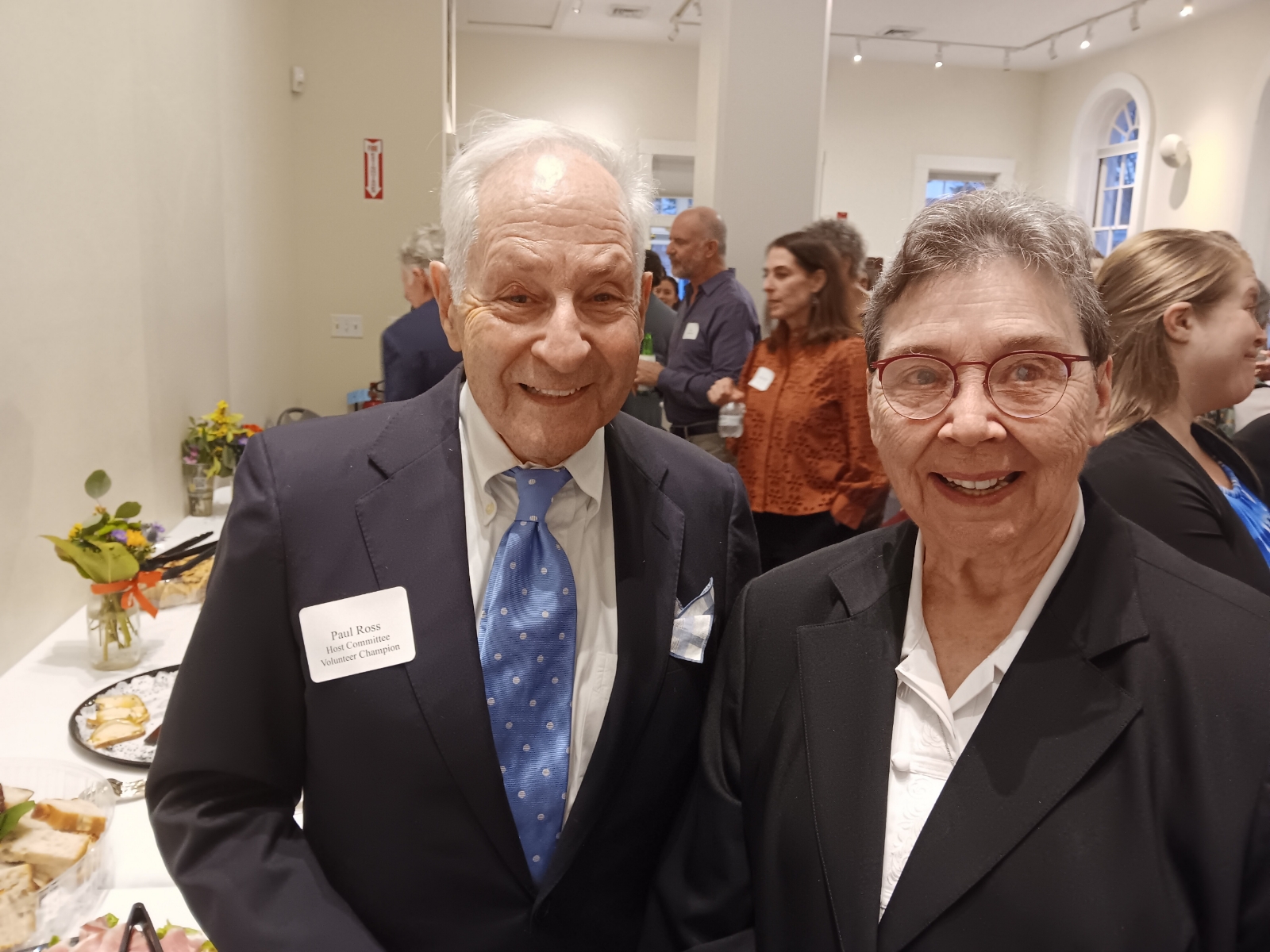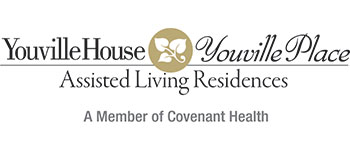By Giving Back, Older Adults Have Much To Gain

Youville Place residents Paul Ross and Sister Marie Mansfield were recently honored for their volunteerism during a celebration in Lexington’s Depot Square.
Sister Marie Mansfield and Paul Ross did not know what to expect when they volunteered for a year-long study at Douglas House. The two Youville Place residents had agreed to assist individuals living with traumatic brain injuries in a pilot program. The purpose of the study was to assess whether people with traumatic brain injuries could benefit from a regimen of cognitive exercises facilitated by volunteers. Every week, Mansfield and Ross would sit with a group of Douglas House residents and help them through the mental exercises prescribed by the study.
“For me it was just an incredible experience,” says Ross. “I went from thinking I had all the answers to listening, watching, encouraging, and being more of a participant with the residents. By the end we felt like we were all in in together. Their support for one another impressed me very much and even changed the way I saw myself.”
Sr. Marie Mansfield recounts a similarly positive experience. “When I started, I knew nothing about brain injury,” she says. “I was never a nurse. There was great variation in the residents’ abilities. Some had more trouble with the exercises than others. As we got to know each other, we gradually became more of a community. By the end, residents who had previously never spoken to one another knew each other’s names. They also looked forward to seeing Paul and I.”
Recently, Mansfield and Ross were honored for their year of volunteerism at a celebration in Lexington’s Depot Square. When asked if they would do it again, both replied, “Yes – we are doing it again!” Although the pilot study has ended, both Ross and Mansfield have elected to continue working with Douglas House residents on a weekly basis.
Mansfield and Ross clearly find their volunteer experiences fulfilling, but research suggests that their benefits may go even further. Volunteering has been linked to increased longevity, improved mental wellness, relief from chronic pain, and fewer hospital visits. Of all age groups surveyed across many volunteerism studies, older adults report the greatest health benefits.
Less Stress, Longer Life
Our body releases the hormone oxytocin when we willingly enter a situation that makes us vulnerable, such as offering to help others. Not only does this hormone disrupt stress so that we can perform selfless acts, but it also helps our cells store nutrients and repair themselves. Some researchers believe this is why older volunteers report reductions in stress. When we are less stressed out, we reduce our risk for heart disease. One study found that older adults who volunteered with at least two organizations over the course of a year had healthier hearts and 44% lower mortality rate than their non-volunteering peers.
Less Depression
According to Dr. Stephen Post, an expert on altruism and the brain, just thinking about helping others causes our brains to release dopamine, a neurotransmitter associated with elevated mood. Studies have confirmed that volunteers over the age of 65 experience less depression than non-volunteering older adults. A major reason seems to be that volunteering can help us maintain social connections and a meaningful role in our community after retirement.
Helping Yourself by Helping Others
In some cases, we can treat our own ailments simply by reaching out to others with the same ailment. This is known as “helper’s therapy principle,” and there is plenty of data to support it. Here are just a few examples:
- A 2002 study found that sufferers of chronic pain reported relief from their symptoms when they volunteered with fellow sufferers. Meanwhile, the sufferers receiving support from the volunteersreported no alleviation of pain. In this case, the mere act of reaching out to others was the most effective pain-reducer.
- According to a review of research published by the National Corporation for Community Service, recovering alcoholics who volunteer with other alcoholics experience less symptoms of depression and greater odds of staying sober.
The data is clear: volunteering has health benefits. But how frequently must one volunteer to reap these benefits?
One extensive survey found that older adults do best when they volunteer at least 100 hours a year, i.e. about two hours a week. Those who volunteered at or above the 100-hour level showed the most significant health benefits. The takeaway: be a regular, not a sporadic volunteer, and you will maximize the benefits to yourself and to your community.



